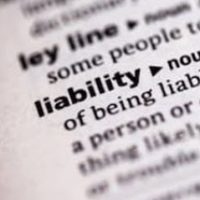Understanding How Negligent Security Cases Work

In a negligent security case, a crime victim can sue a property owner for injuries that are sustained as a result of a criminal attack that happens on the property. This may seem, at first, confusing to some. After all, isn’t criminal activity random, and intentional? Isn’t the act of a criminal something the criminal, not the owner of the property where the crime happens, is responsible for?
All of this is true, in part, but it all leaves out one fact: many property owners know that crime could happen on their property, and don’t do anything to stop—or at least, deter or reduce the chances of crime happening—on their property.
It’s About Foreseeability
Whenever a property owner knows or has reason to know that crime may happen on its property, it has a legal obligation to do something about it. Specifically, the obligation is to take measures to deter the crime, or make it less likely to occur.
But how does a property owner know when crime is going to happen? A property owner doesn’t have to exactly know that one type of crime will happen at this exact moment, in this exact location. Nobody knows that, of course.
But property owners do know when the occurrence of a crime is foreseeable. The property owner knows when crime is likely or highly possible to occur. It knows this from a number of factors.
Measuring Foreseeability
One way to see if crime at a given location is foreseeable is pure statistics. Local law enforcement agencies keep crime statistics; anybody can get those statistics, and see whether or not they are in a high crime area. If so, the property owner has an obligation to take measures to deter the crime.
Certain types of businesses may attract more crime. For example, anywhere expensive items are sold, like jewelry or electronics, may be targets for crime. Areas that attract a lot of crowds may be targets for crime.
What to Do About it?
Once the business knows that criminal activity is foreseeable on its property, the next question is what to do about it. A property owner doesn’t have to actually stop every crime that happens on its property, but it does have to do things that make the crime less likely to occur.
One common sense example is good lighting. Properties should make sure that areas like dark parking lots of remote parking garages are well lit.
In some cases, human security patrolling the areas may be necessary to deter crime. If humans aren’t practical, video surveillance may be necessary. While this doesn’t automatically mean no crime would possibly occur, it does act as a deterrent to potential criminals. Metal detectors or physical gates restricting access to property are other options.
In many cases, security experts are called and used to testify to a jury what measures should have been taken by a property owner, but weren’t. Much of that will depend on the type of property where the crime occurred.
Call the Knoxville premises liability lawyers at Fox Farley Willis & Burnette, PLLC, today if you have been a victim of crime on someone else’s property. We can help you see who may have been liable for your injuries.











